Day 3-045
Day Totals: 16 hrs, 11
.3 kms
Next morning I'm off bright and early, straight to the bus station to see where the wind will carry me next. The guidebook says that to get a bus seat to Botswana I should book a week in advance, so I'd better get moving. Luckily there's room on today's bus, just 8 hours from now, so I go ahead and book my ticket to Gaborone. this gives me another a good half a day to explore Pretoria. Unfortunately there doesn't seem to be anywhere to store my luggage, and I know wandering around town with guitar and backpack will really make me a sitting duck. Finally I find a fellow who works for one of the bus companies who agrees to hold my stuff for me. I decide that the risks of leaving it with him is less than the risks of hauling it with me, so hand the stuff over and head off.
Pretoria feels like a shabby neighborhood in a European city--except there aren't hardly any white folks around. Folks on the street are mostly black, and many of the small shop owners are of South Asian origins
. I stop by to ask one of them for SIM card.
"Are you a tourist?" he asks. I nod. He gets a really troubled look on his face.
"You shouldn't be walking around here. It's very dangerous"
Oh great. You mean I can't even walk around South Africa's CAPITAL in the middle of the day?! I try to get more specifics. "You mean this street right here is dangerous?" I inquire, "Which area of town is it OK to walk around in?"
"Never walk around here in the evening" OK in the evening... I'll remember that. He doesn't give me more specifics. I know I can't just go back to the bus station and hunker down for the next 8 hours... I'm just going to have to stay alert and take it a block at a time.
I profile each person that I walk past. There are plenty of classy folks--but a lot of young folks milling about that my past experience tell me might be up to no good
. I don't know if certain things like wearing hoodies and a slouching walk is a telling sign, or if it's just an attempt to imitate American hip-hop culture... If they are thugs, they don't seem to take to much notice of me, for which I'm glad.
Things get a little better after a couple of blocks. There's the Natural History Museum with a nice plaza in front and City Hall on the other side. In the plaza are statues of some of the the white "heroes" of South Africa, and behind a black tribesman in native dress. South Africa is gradually transitioning many of its Afrikaans and English names for streets and towns to Zulu, Xhosa etc names. This is a delicate process as in this country more than anywhere, one man's hero is another man's villian. The men European descent who set the foundation of the nation of South Africa, also set the foundation for the cruel apartheid system. And the black Africans who fought against the apartheid system are seen as terrorists and troublemakers by whites who look back on that era as the "good ol days"
.
I notice that there's only one face on all South African paper money: Nelson Mandela. probably any other political figure in South Africa's history would just be way too divisive.
I continue on to Church Square which is surrounded by quite beautiful, very British looking buildings, with a statue of a fat, equally British fellow in the center. On down the road I reach a point where the crowd starts thinning out, and i figure I'd better turn back.
Heading east, the ethnic makeup shifts a bit. Here I see more white folks--usually the owners of the businesses... although I do see a couple of instances where it looks like a lone white guy is doing manual labor alongside black workers. Overall though, folks do seem to self-segregate.
I finally reach the Union Buildings once again climb up the hill once more to gaze over the city. Mainly you see mondern skyscrapers from here
... but I knew that down in those streets things aren't quite so shiny and fancy.
Nearby is a monument to police who were killed in the line of duty. I'm curious to see if there was big spike in police fatalities during and after the end of apartheid. This doesn't seem to be the case. Also I'm surprised to see African tribal surnames in the years before the end of apartheid... I kind of thought all the police back then were white...
Finally I follow a long, active pedestrian street back to the bus station, pausing for a tasty meat pie along the way.
Mixed feelings about Pretoria. I definitely need to learn more before I draw any conclusions on this country. Now I've got other business to do: I'm exploring Botswana.
As we wait for the bus, I see a tall white fellow with torn clothes and bad teeth approach us. I see him approach passengers one by one asking for money--but only the white passengers
.
It's an odd sight after my previous experiences in Africa. In most of the rest of Subsaharan Africa, a "poor white person" is a complete oxymoron. It's just automatically assumed that if you're white, you are well off--which is mostly true. It's something deeply entrenched in people's psyche. But here in South Africa, the first person that comes to me begging... is a white man!
It's a quick reminder that the class/race system here in South Africa isn't so cut and dry. Not all whites are in the upper tiers of society. Although whites living in poverty in South Africa are a small minority, they do exist.
A Conversation with a Zambian
We board the bus, where I notice white people look for white people to sit next to. I choose a middle aged, well dressed black fellow as my travel companion, and soon realize that I've made an excellent choice
. We talk for nearly 5 hours straight (well, mostly he talks!) as he provides me with a wealth of understanding on South Africa and all the countries around it.
He talks with a mix of optimism and pessimism about his own country. "Zambians are very patient--maybe a bit too patient" he tells me. "we're able to endure hardship for a long time before we rise up and revolt." He talks about the uncertainty of what will come of the elections, which have been divisive, and hopes that progress will continue with some of the country's big projects--like the 46 kilometer raised causeway across the Borotse floodplain which will connect Zambia with Angola.
"We grow a lot of food in Zambia--and Angola has money to spend... this could really strengthen our economy." He also spoke positively of the white Zimbabwean farmers that were invited by the government to come farm in Zambia when they were kicked out of Zimbabwe. "They've helped us diversify our crops
. You need people who know how to farm. The Zimbabweans who took over their farms had no interest in farming for profit--they just grow enough food for their families--and so the rest of the country has gone hungry"
All's not negative about Zimbabwe though... "They've done much better than us at marketing Victoria Falls. Zambia has the best side of the falls, but hardly anyone thinks of Zambia when they think of Victoria Falls. It's really a wasted opportunity"
He has mixed feeling of the surging Chinese involvement in the country. "They take our raw mineral material, but only pay for the copper. It all gets hauled off to China with the gold an other valuable minerals we never get paid for." At the same time he does express admiration for the Chinese ability to see business opportunities where no one else does. "You'll find them in a village in the middle of nowhere, opening up shop and making money..."
He world with the center for disease control and speaks highly of the efforts to curb the AIDS epidimic
. "The efforts have been effective in all segments of society--except the gay community. Since homosexuality is such a taboo in Zamba--an illegal--it's hard to communicate with them and encourage them to get tested and get treatment."
He worked closely with the US State Department, and confirms my suspicion that American Foreign Service Officers live pretty isolated lives. "for them to be able to go anywhere or socialize outside of their diplomatic circle is quite challenging... In Zambia they even food shop in the consulate's commissary.
I'm relieved that that career path didn't work out for me.
Our conversation turns to South Africa. His thoughts echo some of the same things I've been thinking over these last two days.
"During apartheid, black South Africans had little hope. When apartheid ended, suddenly there was a suddenly a surge of hope and expectations
. People believed their lives were going to improve dramatically. For som it did... but for many it didn't. And betrayed hopes can be a very dangerous thing. It can lead to a lot of anger. And some of them have directed that anger at the easiest target: immigrants from other African countries. They know that we're not South African, so we can never really feel safe there."
When we reach the border of South Africa, I get a little taste of that anger. Waiting to get on the bus, I stand next to a couple black South Africans.
"Are you a racist? Do you support apartheid?" One of them blurts out sharply.
An odd way to start a conversation. "I believe all people should be treated equally" I answer carefully.
"Are you a Boer?" he continues to grill me.
"No, I'm an American" Suddenly his expression changes to a pleasant smile, "Oh
... so you're not a racist..."
This is the first time my "Americanness" has been labeled me as a "non-racist"!
The other fellows join in to quickly teach me about racism in post-apartheid South Africa, "At the university, the white teachers will give us bad grades just because we are black. They'll try to make us fail..."
I listen and try to weigh their frustration. I know "subtle racism" is very real... but I also know that calling "racist!" every time there's a conflict between people is going to make the problem worse, not better...
It's been an eye-opening journey... But now I'm in Botswana, and time to move on to another chapter.
2102. An Uneasy City Hike
Friday, April 08, 2016
 Pretoria, Gauteng, South Africa
Pretoria, Gauteng, South Africa
Other Entries
-
282086 Night in a village Plaza
Jan 1782 days prior Sánchez, Dominican Republicphoto_camera7videocam 0comment 0
Sánchez, Dominican Republicphoto_camera7videocam 0comment 0 -
292087 The Samana Penninsula
Jan 1782 days prior Samaná, Dominican Republicphoto_camera21videocam 0comment 0
Samaná, Dominican Republicphoto_camera21videocam 0comment 0 -
302088 The Political Rally
Jan 1782 days prior San Francisco de Macorís, Dominican Republicphoto_camera1videocam 0comment 0
San Francisco de Macorís, Dominican Republicphoto_camera1videocam 0comment 0 -
312089 The Painted Obelisk
Jan 1881 days prior Cotuí, Dominican Republicphoto_camera7videocam 0comment 0
Cotuí, Dominican Republicphoto_camera7videocam 0comment 0 -
322090 A Chat in the Plaza
Jan 1881 days prior Concepción de la Vega, Dominican Republicphoto_camera8videocam 0comment 0
Concepción de la Vega, Dominican Republicphoto_camera8videocam 0comment 0 -
332091 Recovery Day
Jan 1980 days priorBonaophoto_camera6videocam 0comment 0 -
342092 Another Touristy Town
Jan 1980 days prior Boca Chica, Dominican Republicphoto_camera8videocam 0comment 0
Boca Chica, Dominican Republicphoto_camera8videocam 0comment 0 -
352093 The Old Comercial Capital
Jan 1980 days prior San Pedro de Macoris, Dominican Republicphoto_camera8videocam 0comment 0
San Pedro de Macoris, Dominican Republicphoto_camera8videocam 0comment 0 -
362094 A Chat with the Jehovah's Witnesses
Jan 1980 days prior La Romana, Dominican Republicphoto_camera9videocam 0comment 0
La Romana, Dominican Republicphoto_camera9videocam 0comment 0 -
372095 Pilgrimage Town
Jan 2079 days prior Higuey, Dominican Republicphoto_camera17videocam 0comment 0
Higuey, Dominican Republicphoto_camera17videocam 0comment 0 -
382096 Pleasant, Quiet Town
Jan 2079 days prior El Seibo Province, United Statesphoto_camera5videocam 0comment 0
El Seibo Province, United Statesphoto_camera5videocam 0comment 0 -
392097 The Fanciest Plaza of them All
Jan 2079 days prior Hato Mayor del Rey, Dominican Republicphoto_camera9videocam 0comment 0
Hato Mayor del Rey, Dominican Republicphoto_camera9videocam 0comment 0 -
40Post-visit: Thoughts on Mr Columbus
Jan 2178 days prior Santo Domingo, Dominican Republicphoto_camera100videocam 0comment 0
Santo Domingo, Dominican Republicphoto_camera100videocam 0comment 0 -
412098. A Glorious Layover
Apr 062 days prior Oberschleissheim, Germanyphoto_camera69videocam 0comment 0
Oberschleissheim, Germanyphoto_camera69videocam 0comment 0 -
422099. A Tiny Piece of my Eurohike
Apr 062 days prior Unterschleissheim, Germanyphoto_camera7videocam 0comment 0
Unterschleissheim, Germanyphoto_camera7videocam 0comment 0 -
432100. Open Country
Apr 062 days prior Eching, Germanyphoto_camera4videocam 0comment 0
Eching, Germanyphoto_camera4videocam 0comment 0 -
442101. A Day with my Cousin
Apr 071 day prior Johannesburg, South Africaphoto_camera68videocam 0comment 0
Johannesburg, South Africaphoto_camera68videocam 0comment 0 -
452102. An Uneasy City Hike
Apr 08 Pretoria, South Africaphoto_camera54videocam 0comment 0
Pretoria, South Africaphoto_camera54videocam 0comment 0 -
462103. An African Success Story
Apr 091 day later Gaborone, Botswanaphoto_camera97videocam 0comment 0
Gaborone, Botswanaphoto_camera97videocam 0comment 0 -
472104. Getting Lost in Botswana
Apr 102 days later Francistown, Botswanaphoto_camera21videocam 0comment 0
Francistown, Botswanaphoto_camera21videocam 0comment 0 -
482105. Stuck at the Border
Apr 113 days later Lobatse, Botswanaphoto_camera4videocam 0comment 0
Lobatse, Botswanaphoto_camera4videocam 0comment 0 -
492106. Trapped in Downtown
Apr 113 days later Mafikeng, South Africaphoto_camera3videocam 0comment 0
Mafikeng, South Africaphoto_camera3videocam 0comment 0 -
502107. An Unlikely Guardian Angel
Apr 124 days later Vryburg, South Africaphoto_camera5videocam 0comment 0
Vryburg, South Africaphoto_camera5videocam 0comment 0 -
512108. A Chat with a Pakistani Shopkeeper
Apr 124 days later Kuruman, South Africaphoto_camera2videocam 0comment 0
Kuruman, South Africaphoto_camera2videocam 0comment 0 -
522109. A Land of Endless Fences
Apr 124 days later Upington, South Africaphoto_camera4videocam 0comment 0
Upington, South Africaphoto_camera4videocam 0comment 0 -
532110. First Impressions of Namibia
Apr 135 days later Mariental, Namibiaphoto_camera6videocam 0comment 0
Mariental, Namibiaphoto_camera6videocam 0comment 0 -
542111. Wandering Freely
Apr 135 days later Rehoboth, Namibiaphoto_camera5videocam 0comment 0
Rehoboth, Namibiaphoto_camera5videocam 0comment 0 -
552112. A Train Ride to Nowhere
Apr 146 days later Walvis Bay, Namibiaphoto_camera64videocam 0comment 0
Walvis Bay, Namibiaphoto_camera64videocam 0comment 0 -
562113. The Namib Desert
Apr 157 days later Swakopmund, Namibiaphoto_camera74videocam 0comment 0
Swakopmund, Namibiaphoto_camera74videocam 0comment 0 -
572114. Frontier Town
Apr 168 days later Usakos, Namibiaphoto_camera13videocam 0comment 0
Usakos, Namibiaphoto_camera13videocam 0comment 0 -
582115. Reaching Curfew Time
Apr 168 days later Okahandja, Namibiaphoto_camera1videocam 0comment 0
Okahandja, Namibiaphoto_camera1videocam 0comment 0 -
592116. The North Korea Connection
Apr 179 days later Windhoek, Namibiaphoto_camera81videocam 0comment 0
Windhoek, Namibiaphoto_camera81videocam 0comment 0 -
602117. Wandering off into the Desert
Apr 1810 days later Keetmanshoop, Namibiaphoto_camera46videocam 0comment 0
Keetmanshoop, Namibiaphoto_camera46videocam 0comment 0 -
612118. A Very Different South Africa
Apr 1911 days later Cape Town, South Africaphoto_camera23videocam 0comment 0
Cape Town, South Africaphoto_camera23videocam 0comment 0 -
62Cape Town: The World's Best Urban-Nature Hike
Apr 2012 days later Cape Town, South Africaphoto_camera186videocam 0comment 0
Cape Town, South Africaphoto_camera186videocam 0comment 0 -
63Cape Town: It's Many Faces
Apr 2113 days later Cape Town, South Africaphoto_camera138videocam 0comment 0
Cape Town, South Africaphoto_camera138videocam 0comment 0

 Pretoria, Gauteng, South Africa
Pretoria, Gauteng, South Africa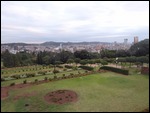
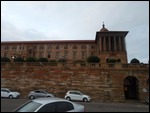
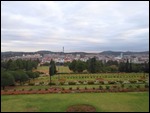
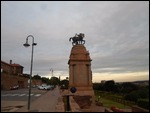
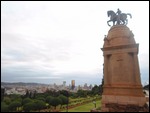
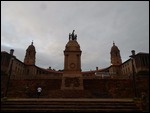
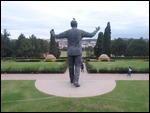
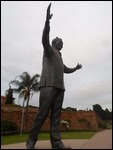
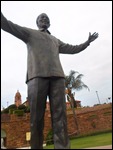
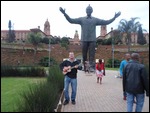
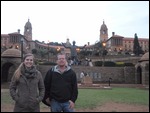






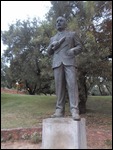
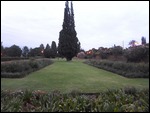
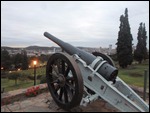
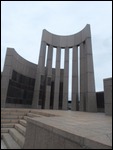
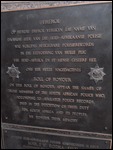
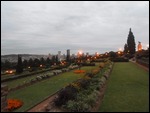
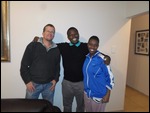
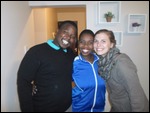
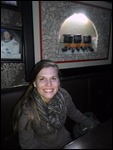
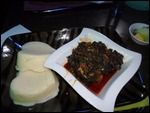
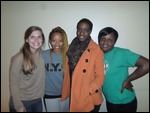
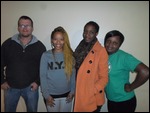
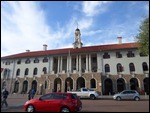
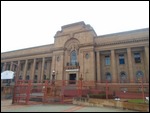
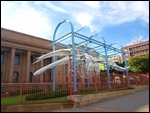
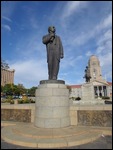
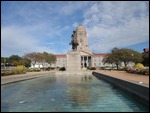
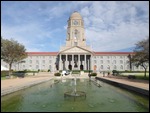
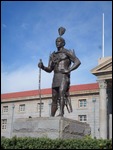
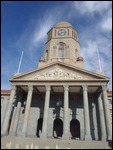
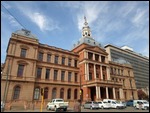
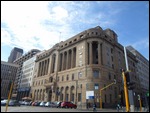
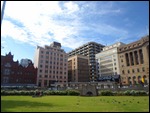
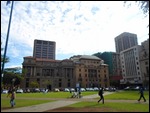
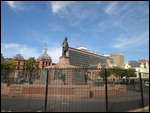
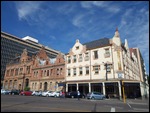
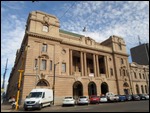
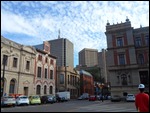
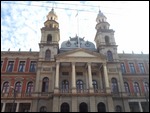
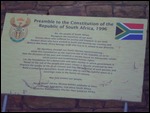
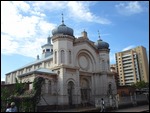
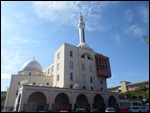
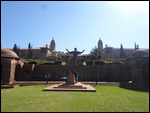
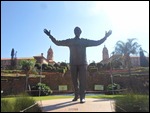
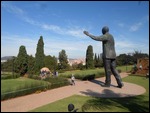
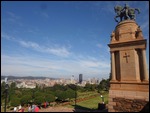
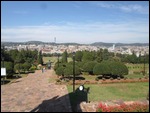
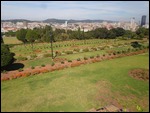
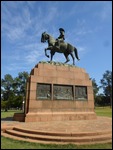
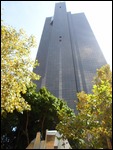
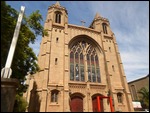
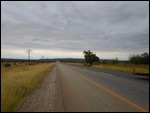
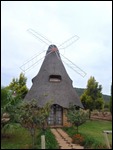
2025-05-23